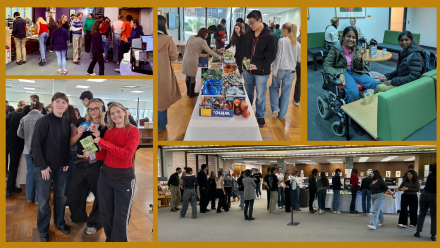Library and Information Week 2023
Ever found yourself reading something online or even in print and thinking ‘this surely can’t be correct’? Chances are you have. But, did you ask what the source of the information was?
Library and Information Week is running 31 July – 6 August. This event, organised by the Australian Library and Information Association (ALIA), aims to highlight the role and importance of libraries, showcase the resources and services they provide to the community, and celebrate the work that library workers do all around Australia!
This year, the theme is ‘Where’s the source?’, highlighting the importance of knowing the provenance of a piece of information.
Where does a piece of information come from?
Why does it appear in the way that it does?
Who made it?
Who owns it?
When was it created?
Who paid for it?
Asking and answering these questions helps us judge the credibility, relevance and value of a piece of writing, music, art or other medium. It also helps gauge if the perspective may biased and reduce the spread of misinformation.
With the advent of generative AI like ChatGPT, knowing and understanding different types of sources is becoming more important, especially for academic institutions, who need to protect the integrity of their work.
Questions about sources aren't limited to the world of AI or even physical or print materials. A source could be an oral history, a family tree, an origin story. Understanding the source of the work you are engaging with helps to develop a more critical, informed approach to what you are reading, listening to, watching, or otherwise consuming.
The ANU Library has some useful LibGuides about using different types of sources, how to choose the best types of material for your research, and making sure you reference your sources correctly:
- Evaluating sources
- How to cite generative AI like ChatGPT
- Writing citations and abstracts
- Referencing with Endnote
- Formulate a research strategy
- Subject guides for specific disciplines, outlining various reliable scholarly sources
If you are referring to a specific work, make sure you trust the source, acknowledge the author or authors and consider if you need to be sceptical of these. Academic institutions, researchers and students rely on both producing and referencing credible, leading works on their subject matter. So next time you’re reading something, ask yourself ‘Where’s the source?’.


